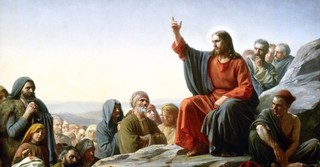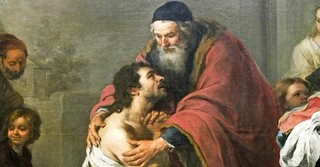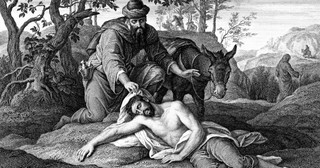Feast of Tabernacles - Bible Story
Share
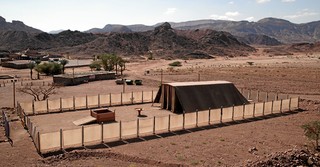
What is the Feast of Tabernacles?
The Feast of Tabernacles, also known as Sukkot in Hebrew, is one of the three major pilgrimage festivals in the Bible, alongside Passover and the Feast of Weeks (Shavuot). It is celebrated for seven days, beginning on the 15th day of the Hebrew month of Tishrei, which usually occurs in late September to late October.
During this week-long event, people would live in temporary shelters (tabernacles) to commemorate the Israelites' journey in the wilderness after leaving Egypt. It's a time for giving thanks and remembering God's provision and protection.
The Feast of Tabernacles in the Bible
Then the Lord spoke to Moses, saying, "Speak to the children of Israel, saying: 'The fifteenth day of this seventh month shall be the Feast of Tabernacles for seven days to the Lord. On the first day there shall be a holy convocation. You shall do no customary work on it. For seven days you shall offer an offering made by fire to the Lord. On the eighth day you shall have a holy convocation, and you shall offer an offering made by fire to the Lord. It is a sacred assembly, and you shall do no customary work on it.
These are the feasts of the Lord which you shall proclaim to be holy convocations, to offer an offering made by fire to the Lord, a burnt offering and a grain offering, a sacrifice and drink offerings, everything on its day-- besides the Sabbaths of the Lord, besides your gifts, besides all your vows, and besides all your freewill offerings which you give to the Lord 'Also on the fifteenth day of the seventh month, when you have gathered in the fruit of the land, you shall keep the feast of the Lord for seven days; on the first day there shall be a sabbath-rest, and on the eighth day a sabbath-rest.
And you shall take for yourselves on the first day the fruit of beautiful trees, branches of palm trees, the boughs of leafy trees, and willows of the brook; and you shall rejoice before the Lord your God for seven days. You shall keep it as a feast to the Lord for seven days in the year. It shall be a statute forever in your generations. You shall celebrate it in the seventh month. You shall dwell in booths for seven days. All who are native Israelites shall dwell in booths, that your generations may know that I made the children of Israel dwell in booths when I brought them out of the land of Egypt: I am the Lord your God.' " So Moses declared to the children of Israel the feasts of the Lord. (Leviticus 23:33-44 NKJV)
Meaning of The Feast of Tabernacles
The significance of the Feast of Tabernacles can be found in several areas of the Bible, particularly in Leviticus 23, Numbers 29:12-38, and Deuteronomy 16:13-15. Here's a summary of its meanings and purposes:
Agricultural Significance: The festival occurs at the time of the year when the harvest is gathered, marking the end of the agricultural year. It is a time of thanksgiving for the land's bounty, a harvest celebration.
Historical Remembrance: The Feast of Tabernacles commemorates the 40 years of wandering in the desert by the Israelites, during which they lived in temporary shelters (sukkot). It serves as a reminder of when God provided for the Israelites in the wilderness after the Exodus from Egypt.
A Time of Joy and Unity: It is described as the "season of our joy" (Zeman Simchateinu). The festival encourages communal participation, joyous celebration, and unity among the people as they gather in Jerusalem to celebrate, which was particularly emphasized during the time of the Temple.
Spiritual Significance: It also has deep spiritual meanings, symbolizing God's sheltering presence and the belief in divine protection. The temporary nature of the sukkah (the hut or booth) is a reminder of the transience of life and the importance of relying on God.
Eschatological Significance: In prophetic literature, such as Zechariah 14:16-19, the Feast of Tabernacles is envisioned as a time when all nations will come to Jerusalem to worship the Lord, signifying a period of peace and universal recognition of God.
Throughout its observance, participants build and dwell in sukkot (plural for sukkah) to fulfill the commandment to "dwell in booths for seven days." The sukkah is deliberately constructed to be temporary and somewhat exposed to the elements, reminding participants of the fragility of life and the need for faith in God's provision.
In addition to its original agricultural and historical significances, the Feast of Tabernacles has evolved to acquire deeper theological and messianic meanings within both Jewish tradition and Christian eschatology, where it is sometimes associated with the return of Christ and the establishment of His kingdom.
Historical Events and Biblical Moments
Historically, the Feast of Tabernacles has been a backdrop for pivotal biblical events. Solomon chose this time to dedicate the First Temple, an act of immense spiritual and national significance for Israel (1 Kings 8:2). Similarly, during the post-exilic period, leaders like Joshua, Zerubbabel, and Ezra played crucial roles during Sukkot. Under their leadership, the Israelites celebrated the feast with renewed dedication, and Ezra's public reading of the Law sparked a great revival (Ezra 3; Nehemiah 8). Notably, Jesus Christ utilized the occasion of Sukkot to teach profound truths about living water and belief (John 7:37-39), embedding the festival with additional layers of spiritual meaning.
Pilgrimage and Community Unity
Sukkot is one of the three pilgrimage feasts mandated in the Torah, requiring every Jewish male to appear before the Lord in Jerusalem. This brought together thousands from across ancient Israel, creating a vibrant community of faith, worship, and celebration. The influx of pilgrims to Jerusalem highlighted the festival's significance, transforming the city into a bustling hub of religious activity. This pilgrimage aspect underscores the importance of communal worship and the collective remembrance of God's deliverance.
Sacrificial Practices and Rituals
The Feast of Tabernacles was marked by an elaborate array of sacrifices, necessitating the service of all twenty-four priestly divisions. The diverse and numerous sacrifices signified the people's complete devotion to God and gratitude for His provision. This ritual aspect emphasized the festival's role in maintaining the covenant relationship between God and His people through worship and sacrifice.
Theological Implications and Messianic Expectations
Beyond its historical and ritual significance, Sukkot holds profound theological implications, especially in the context of Christian eschatology. The festival is seen as a foreshadowing of Christ's second coming and His eternal reign. Some theologians also suggest that Jesus' birth occurred during Sukkot, given the shepherds' presence in the fields—a detail aligning with the festival's agricultural context. The Gospel of John subtly hints at this connection by using the term "tabernacle" to describe Christ's incarnation (John 1:14), suggesting that Jesus' earthly ministry symbolically began with His own "tabernacling" among humans.
Feast of Tabernacles Conclusion
The Feast of Tabernacles is a multifaceted celebration, deeply rooted in the Jewish tradition and enriched by its connections to Christian theology. Its observance commemorates historical events, embodies deep spiritual truths, and anticipates future fulfillment in the Messiah's coming. As such, Sukkot is a powerful reminder of God's provision, protection, and promise to dwell among His people. Through the lens of Sukkot, believers are invited to reflect on the past, celebrate the present, and look forward with hope to the future kingdom of God.
Read the Bible passages relating to the Feast of Tabernacles in the section below:
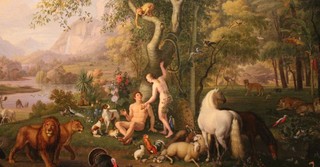
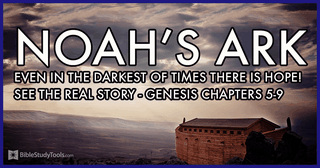
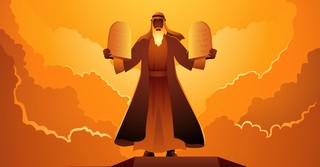
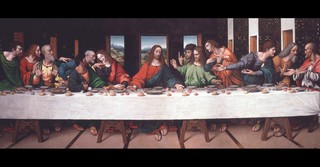

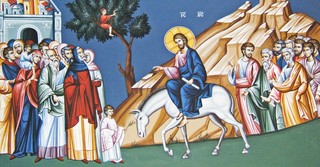
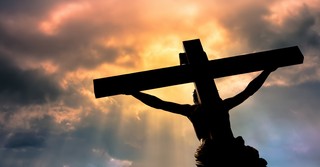
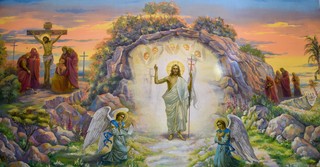

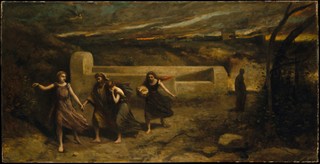
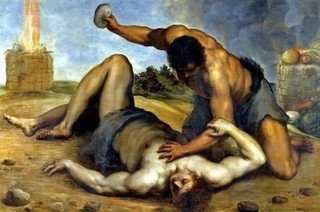
.800w.tn.jpg)
